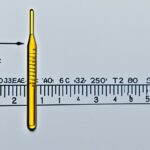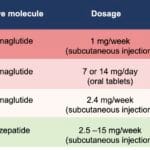Giving your child the correct dose of medication is paramount, and Augmentin is no exception. This comprehensive guide provides parents and caregivers with a clear understanding of Augmentin dosing, including how to use a pediatric dose calculator and crucial factors to consider.
Decoding the Augmentin Pediatric Dose Calculator
Accurately determining the right Augmentin dose for your child is essential for effective treatment. While a pediatric dose calculator can be a valuable tool, it’s important to understand its function and limitations. Think of it as a helpful guide, but always consult with your child’s doctor or other qualified healthcare professional for personalized advice.
Using the Calculator: A Step-by-Step Approach
Determine Child’s Weight: Accurate weight is crucial. Convert to kilograms (kg) if you only have the weight in pounds (lbs). You can easily convert pounds to kilograms using an online converter or by dividing the weight in pounds by 2.2.
Identify the Correct Augmentin Formulation: Augmentin comes in various forms (liquid suspensions, chewable tablets) with differing concentrations of amoxicillin and clavulanate potassium. Carefully check your child’s prescription to ensure you select the correct formulation for the calculation. The 250mg tablet should not be used for children under 40 kg. For infants under 3 months, the 125mg/5mL suspension is generally recommended.
Calculate the Dose: Input the child’s weight (in kg) and the chosen Augmentin formulation into the calculator. You can find several reliable online calculators, such as those on Healthify.nz, pedscalc.com, or even mobile apps. The calculator will typically provide a recommended dose in milliliters (mL) for liquid suspensions or milligrams (mg) for chewable tablets.
Interpreting the Results and Professional Consultation
Calculators generally provide a dosage range, not a single fixed number. Your child’s doctor will determine the most appropriate dose within that range, considering factors like the specific infection, kidney function, and other individual health considerations. Never self-medicate or adjust a child’s dosage without consulting a healthcare professional.
Understanding Factors That Influence Augmentin Dosage in Children
While weight is the primary factor in determining Augmentin dosage, other factors also contribute to ensuring safe and effective treatment.
Infection Type and Severity
The type of bacterial infection (e.g., ear infection, pneumonia, sinusitis) significantly influences the prescribed dose. More severe infections might require higher doses or a longer treatment duration. For example, a simple ear infection might require a lower dose compared to a more serious case of pneumonia.
Kidney Health
Children with impaired kidney function may need dosage adjustments to prevent the medication from accumulating in their bodies. The kidneys play a vital role in processing and eliminating medications, so any kidney issues need careful consideration.
Age
While less impactful than weight and infection type, age can influence dosing, particularly in infants under 3 months of age. Younger children’s bodies process medications differently than older children and adults, so careful dosage adjustments are essential.
Other Medications and Allergies
Always inform your doctor about any other medications your child is taking, as some can interact with Augmentin. Also, a penicillin allergy is a contraindication to Augmentin use.
Administering Augmentin: Best Practices and Important Reminders
Best Practices:
- Shake It Well: If using a liquid suspension, shake the bottle vigorously before each dose to ensure even distribution of the medication.
- Measure Precisely: Use the provided oral syringe or dosing cup for accurate measurement. Avoid eyeballing the dose.
- Food Considerations: Augmentin can be taken with or without food. However, if your child has a sensitive stomach, giving it with food might help prevent upset.
- Complete the Full Course: Even if your child starts feeling better, complete the entire prescribed course of Augmentin. Stopping early can lead to antibiotic resistance, making future infections more difficult to treat.
Important Reminders:
- Always Consult Your Doctor: The information provided here is not a substitute for professional medical advice. Always consult with your child’s pediatrician or another qualified healthcare provider before starting any medication, including Augmentin.
- Dose Calculator Limitations: Online dose calculators are helpful tools but should not replace a doctor’s professional judgment. They are designed to assist, not replace, a doctor’s assessment and prescribed dose.
- Storage: Store Augmentin at room temperature in a dry place, away from direct sunlight and moisture.
What is Augmentin and Why Precise Dosing Matters for Children?
Augmentin is a combination antibiotic containing amoxicillin and clavulanate potassium. Amoxicillin fights bacteria, while clavulanate potassium prevents bacteria from becoming resistant to amoxicillin. This combination makes Augmentin effective against a wide range of bacterial infections.
Precise dosing is paramount for children because their bodies process medications differently than adults. Incorrect dosages can have significant consequences:
- Too Low: Treatment may be ineffective, potentially leading to antibiotic resistance. This means that future infections might be harder to treat with standard antibiotics.
- Too High: Increases the risk of side effects, including:
- Diarrhea
- Nausea
- Vomiting
- Rash
- Allergic reactions (hives, breathing difficulties, swelling)
How Does a Pediatric Dosage Calculator Work for Augmentin?
Pediatric dosage calculators for Augmentin use a child’s weight and the specific Augmentin suspension strength to determine the appropriate dose. While the exact calculation may vary between calculators, they typically employ formulas based on the recommended daily dose of amoxicillin in mg per kilogram of body weight per day (mg/kg/day). The calculator then converts this to a volume (mL) to be administered.
It’s crucial to understand that these calculators provide a suggested dosage range, requiring a healthcare professional to make the final determination based on the child’s individual needs and the infection being treated.
While research suggests standard weight-based dosing is generally effective, there is ongoing research exploring how individual factors like genetics and metabolism may influence drug response in children. This research suggests the possibility of more personalized dosing strategies in the future.
If you need more information about alveoplasty or the carbon cycle gizmo answer key, you can click on the links provided.
- Crypto Quotes’ Red Flags: Avoid Costly Mistakes - June 30, 2025
- Unlock Inspirational Crypto Quotes: Future Predictions - June 30, 2025
- Famous Bitcoin Quotes: A Deep Dive into Crypto’s History - June 30, 2025
















2 thoughts on “Augmentin Dosage Calculator for Children: A Precise Guide for Parents & Caregivers”
Comments are closed.